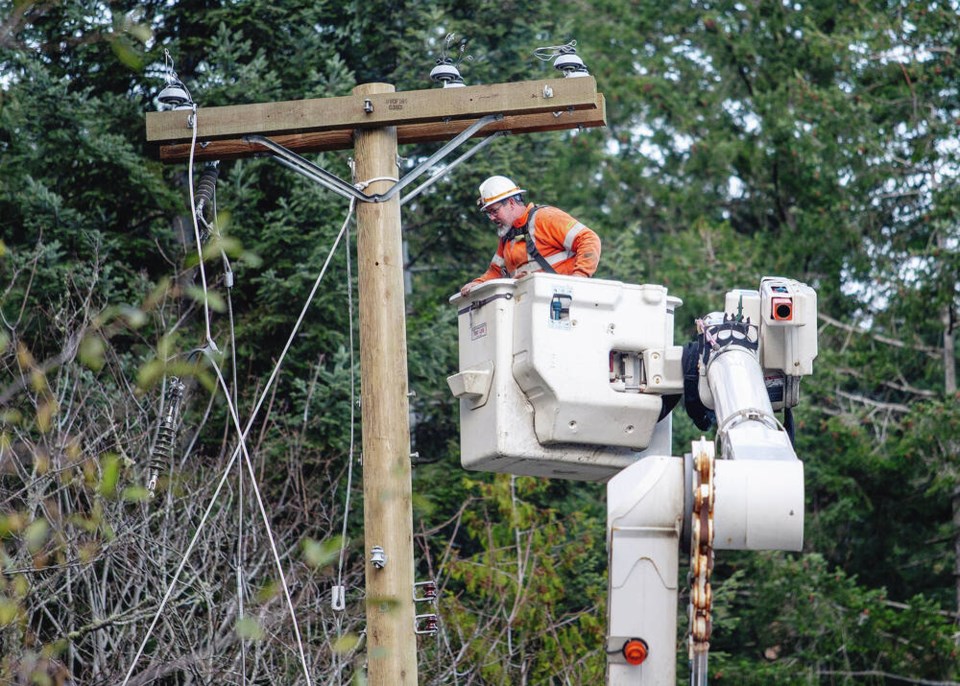Power outages across British Columbia hit record levels in 2024, with three quarters of the province’s residents seeing their lights go out at least once, a new poll has found.
Carried out by the Angus Reid Forum on behalf of BC Hydro, the survey found more than 1.4 million customers faced weather-related power outages last year. That’s the most in the electric utility’s history. Most of the outages came from three powerful storms that hit the South Coast and Vancouver Island in the last two months of the year.
“These storms were among the top five largest in the past decade, resulting in about one million customer outages combined,” said BC Hydro in a press release.
The utility said the storms were made worse by years of drought that left trees and vegetation across the province dry and damaged. That made them more susceptible to falling into electric infrastructure.
BC Hydro spokesperson Susie Rieder said that despite the rise in outages, BC Hydro’s response time has been improving.
“BC Hydro has been preparing extensively for the effects of climate change on our system, including tripling our budget this year for vegetation management on transmission and distribution lines to battle the effects of drought,” said Rieder in a statement.
Rieder added that BC Hydro crews have maintained their “track record” of restoring 90 per cent of customers within 24 hours.
According to the utility, crews have kept up that level of response by strategically pre-deploying teams; its budget to manage problematic trees and vegetation has climbed to $150 million, up from $50 million 10 years ago.
BC Hydro says smart meters have also helped it validate outage size, while better meteorological models have improved its ability to predict impacts from severe weather and deploy crews and equipment before a storm arrives.
The survey, carried out online between Jan. 17 and 21, included 817 adult British Columbians and carries a margin of error of plus or minus 3.5 percentage points.



